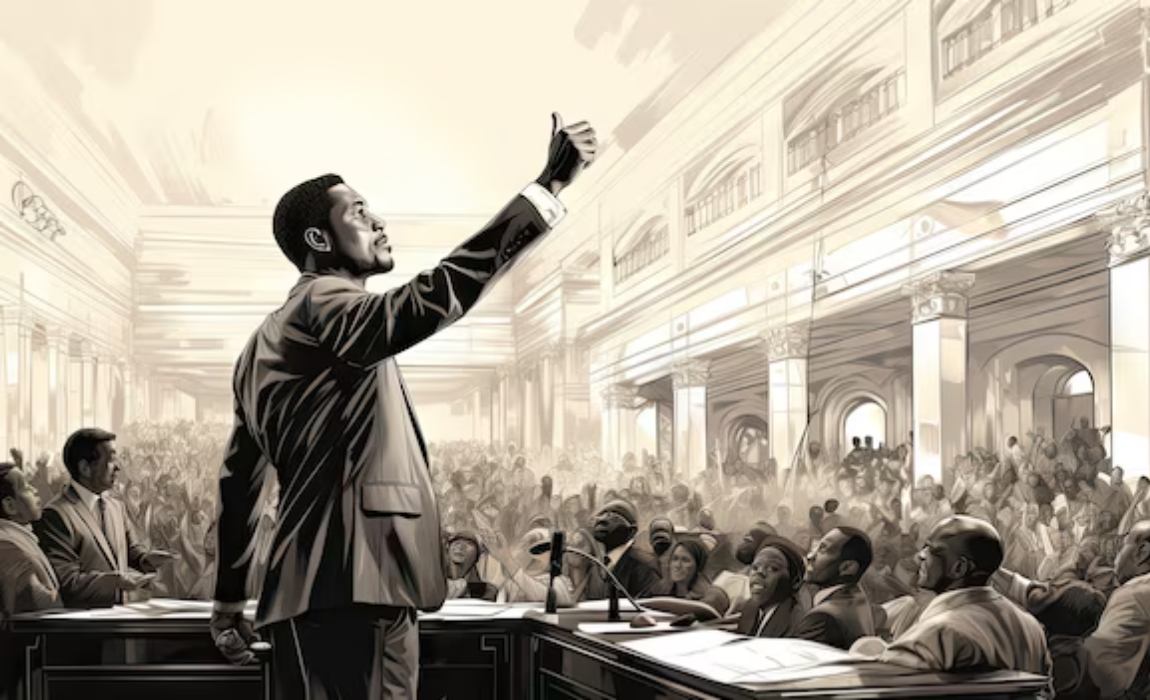
The Bench and the Ballot: Judicial Independence in a Polarized Democracy
In every democracy, two institutions stand as the ultimate guardians of people’s will and constitutional values—the ballot and the bench. The ballot signifies the sovereign power of the people, expressed through elections. The bench, embodied in the judiciary, symbolizes the impartial application of the rule of law. In an ideal democratic order, these two should function in harmony, complementing rather than conflicting with one another. Yet, in a climate of growing polarization, the relationship between the bench and the ballot often turns into a site of contestation, raising difficult questions about the survival of judicial independence.
The fragility of judicial independence
Judicial independence is not merely a constitutional guarantee—it is a lived reality
that depends on the courage of judges, the culture of accountability, and the respect of political actors for institutional boundaries. In a polarized democracy, however, judicial independence is constantly under pressure. Political actors attempt to frame judicial pronouncements as partisan victories or defeats, reducing reasoned judgments into the language of political gain. Social media echo chambers intensify this by branding courts as either “pro-establishment” or “anti-government,” eroding public trust in their neutrality.
When courts adjudicate on issues with direct electoral implications—such as disqualification of legislators, scrutiny of electoral bonds, or regulation of campaign finance—the thin line between the bench and the ballot becomes even more blurred. A judgment that upholds constitutional morality may be projected as undermining the “people’s mandate.” Conversely, a judicial silence in moments of crisis is seen as complicity.
Lessons from comparative democracies
The tension between judicial independence and political majoritarianism is not unique to India. The United States has witnessed severe polarization over the Supreme Court, where judicial appointments are increasingly seen as ideological battles. In Eastern Europe, courts have faced political capture, threatening the very essence of separation of powers. These experiences underline a sobering truth: democracy without an independent judiciary risks degenerating into electoral authoritarianism.
India’s constitutional design, through Articles 32, 136, 141, and 142, places the judiciary as the sentinel of rights and the arbiter of constitutional balance. But the effectiveness of these powers depends on public faith that the judiciary is insulated from the ebbs and flows of politics.
The responsibility of restraint and assertion
Judicial independence, however, is not absolute immunity. It is coupled with the duty of restraint, transparency, and reasoned accountability. The bench must resist both the temptation of populism and the fear of political backlash. For instance, while judicial interventions in governance are sometimes necessary to safeguard rights, overreach into policy may invite perceptions of judicial over-activism, feeding the very narratives that undermine its credibility.
Equally, moments of silence in the face of constitutional challenges can be more damaging than overreach. History remembers courts not only for judgments delivered but also for opportunities missed. The legacy of ADM Jabalpur during the Emergency remains a cautionary tale: judicial abdication can wound democratic faith for generations.
Safeguarding the future
To safeguard judicial independence in a polarized democracy, three steps are essential. First, judicial appointments must be shielded from excessive executive influence while ensuring transparency. The credibility of the bench begins with the process of selecting judges. Second, judicial reasoning must be communicated in a language that is accessible yet rigorous, so that the public understands judgments as legal principles rather than political positions. Third, the bar and civil society must play an active role in defending judicial autonomy, ensuring that attacks on courts do not go unchallenged.
Conclusion
The ballot grants legitimacy to governments; the bench ensures that such legitimacy is exercised within the boundaries of law. In a polarized democracy, the dialogue between these two institutions is fraught with suspicion and conflict. Yet, the survival of constitutional democracy depends on maintaining their delicate balance. The judiciary must remain independent, not as an ivory tower detached from society, but as a principled guardian of the Constitution. The true strength of democracy lies not merely in electoral victories but in the continued trust that justice will be blind to political divides.
